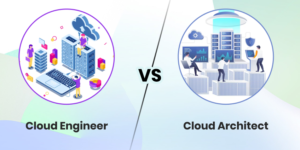
If you’re wondering whether an IT degree can actually lead to a fulfilling, successful career, you’re not alone. I asked myself the same thing a few years back while juggling part-time jobs and tinkering with outdated laptops in my garage. Today, I manage a cloud infrastructure team for a global retail brand — and it all started with the skills I gained through an information technology program.
Here’s what no one tells you upfront: the journey to a tech career isn’t a straight line. But the path gets a lot clearer with the right foundation. For many, that foundation is an IT degree. And the proof isn’t just in stats or glossy brochures — it’s in real lives transformed by the decision to study information technology. Let’s meet a few of those stories.
From Retail Floors to Cyber Floors: Aisha’s Pivot
Aisha spent years working in customer service, balancing her schedule around her kids and trying to make ends meet. But she always had an eye for troubleshooting. Friends would call her when their routers stopped working or their systems slowed down.
Eventually, she asked the question that changed her life: “What if I did this for a living?” With no prior formal training, Aisha enrolled in an applied IT program that offered hands-on experience in cybersecurity and network infrastructure. Six months into her coursework, she landed a paid internship as a junior IT support specialist.
Today, she works in vulnerability management for a mid-sized financial firm — and she’s mentoring others breaking into the field.
Tech Isn’t Just for Coders: Jason’s Journey into Cloud Solutions
Jason never saw himself as a “tech guy.” In high school, he leaned more toward graphic design than JavaScript. But once he understood how cloud computing services worked — and how companies were using it to streamline everything from retail to healthcare — he was hooked.
During his IT coursework, Jason discovered his strength in systems analysis and platform migration. His capstone project involved designing a cloud-based file sharing system for a local nonprofit — a project that’s still in use today.
Now, he’s part of an enterprise solutions team helping legacy companies move to the cloud securely and efficiently.
Real-World Projects That Lead to Real-World Jobs

One of the best parts of earning a degree in information technology is getting to work on tangible projects. We’re not talking about theoretical assignments here. Students build secure networks, design data pipelines, and test disaster recovery protocols.
Employers love this. They’re looking for people who don’t just know the terms — they want team members who’ve already used project management tools, simulated IT service desk environments, and written data protection policies.
Take it from Naomi, who was hired straight out of college by a logistics firm to improve their legacy database system. Why did they pick her? Because she had already built one from scratch during her coursework.
Soft Skills Matter More Than You Think
The biggest misconception about IT is that it’s all about code. But the truth is, successful professionals in this field know how to communicate. They can break down complex systems for non-technical stakeholders. They understand timelines, budgets, and how to lead a team through a technical challenge without panicking.
Graduates who pair their technical knowledge with critical thinking, presentation skills, and collaboration always stand out. It’s what helped Bryan transition from IT intern to team lead in under two years. He says the turning point came when he started explaining backend issues in plain language during client meetings.
How a Degree Can Help You Switch Careers — Fast

A lot of people hesitate to go back to school because they think it takes years. But the truth is, many IT programs are built for career-switchers. Some are structured so you can complete your coursework in 12 to 18 months.
That’s what worked for Maria, who left her job in hospitality and earned an associate degree in information systems with a focus on network security. She didn’t wait to finish her degree before she started applying what she learned. Maria began freelancing as a home network consultant and now works full-time as a security operations analyst.
Certifications vs. Degrees: What Gives You the Edge?
There’s a lot of talk about IT certifications, and rightfully so. Certs like CompTIA A+, Network+, and Security+ carry serious weight. But a degree gives you something those certifications don’t: context.
A structured program walks you through foundational knowledge, shows you how different systems connect, and teaches you the why behind the what. It’s not about picking one or the other — it’s about stacking both. Many grads use their academic work to prepare for certification exams, gaining both credibility and confidence.
The Hidden Benefits of a Formal Education in IT
Aside from landing a job, earning an IT degree opens doors in unexpected ways. You build a professional network. You get access to mentors who’ve been in the field for decades.
You learn how to present your work and document systems clearly — a must-have in fields like IT auditing and compliance. You also get guidance on building a portfolio that shows more than just skills — it shows impact.
What Employers Actually Look For in Entry-Level Candidates
Recruiters aren’t just scanning resumes for buzzwords.
They’re asking questions like:
- Can this person troubleshoot without supervision?
- Have they worked on real systems?
- Can they collaborate with teams across departments?
- Are they familiar with current tools like Azure, AWS, or Linux?
That’s why so many grads from hands-on programs outperform bootcamp students.
They’ve practiced in sandbox environments that mimic what they’ll face in the real world.
Final Thoughts: Your IT Career Starts with One Decision
There’s no one-size-fits-all path in tech. Some people start with coding. Others start with curiosity. What matters is taking that first step — choosing to learn, adapt, and grow. And if that step includes an IT degree, you’ll be joining thousands who turned that decision into a launchpad.
What starts as a class project could end up being your next big career move. Ready to make that move? You’ve got options.






